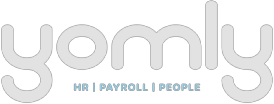The Benefits And Drawbacks Of Cloud-Based HR Systems
The shift to cloud-based HR systems is more than just a trend, but how does it balance its advantages against its drawbacks? For businesses striving for efficiency and scalability, the cloud offers a compelling infrastructure for HR functions. In this article, we will delve into what exactly the cloud is, the significant benefits it offers, particularly in terms of scalability and the drawbacks that need to be considered.

What Is The Cloud?
Before we can explain the benefits of cloud-based HR software, we first need to explain what the cloud is and how it works. The “cloud” is essentially a network of servers that store data and applications on the internet, rather than on a physical hard drive or in-house server. This facilitates accessibility, as data can be accessed from anywhere at any time and also augments security features, including backups and firewalls.
It’s All About Scalability
The biggest benefit of cloud-based HR software is scalability, an attribute that serves as the linchpin for a multitude of other advantages. Scalability doesn’t just ensure your HR system can accommodate an increasing number of employees or handle a larger data load. It also ensures that you can keep pace with technological advancements and industry shifts by facilitating the seamless integration of new modules, features, or even entirely new functionalities as they become relevant. For example, if your business expands into new markets, cloud-based solutions can readily incorporate the requisite compliance modules tailored for those specific geographic areas.
The other key benefits manifest as direct derivatives of this crucial ability to scale. For instance, operational cost-efficiency is a byproduct of a system’s capacity to tailor its services to your exact needs – thus negating the need for redundant features that you pay for but never use. In a similar vein, scalability enhances operational efficiency by precluding the need for frequent, disruptive system overhauls, which often necessitate downtime and workforce retraining. This means you can gradually introduce new modules or features, allowing your employees to adapt in real-time without a steep learning curve. Companies like Yomly understand these intricacies well, offering cloud-based HR solutions designed to scale in sync with your organisational growth and evolving needs.
The Drawbacks Of Relying On The Cloud
Most contemporary software, including that for HR and payroll, is progressively migrating to cloud-based platforms. Yet, this transition is not without its challenges. One of the foremost concerns for many businesses is data privacy. While storing your organisation’s sensitive data on external servers might seem risky, this potential drawback is generally offset by state-of-the-art encryption protocols and secure firewalls that cloud-based systems often employ to protect your data.
Another issue worth considering is the reliance on stable internet connectivity. A disruption in internet service could temporarily impede access to crucial HR data and functions. However, many cloud-based HR systems now offer offline capabilities, allowing users to continue working on essential tasks and synchronising the offline data once connectivity is restored.
The third point of contention could be regulatory compliance, particularly for businesses that operate across multiple jurisdictions. The intricacy of maintaining compliance with various labour laws and regulations can seem daunting. Yet, this is another area where cloud-based platforms shine. Vendors such as Yomly have crafted their software with these challenges in mind. They offer modules that are compliant with a range of international regulations, including those specific to the UAE, thereby alleviating concerns about legal conformity.
Taking A Holistic Approach To HR
There is no singular solution or approach that immediately solves all HR and payroll-related problems. The ideal solution would be able to address multiple “problems” at once and would be more readily accessible than other solutions on the market. Opting for a cloud-based HR system offers the flexibility and scalability to adapt to varying organisational needs, presenting a balanced mix of benefits and manageable drawbacks.
The key is in selecting a platform that aligns with your specific requirements and growth strategies. Cloud-based HR solutions like those offered by Yomly can provide the most adaptive and comprehensive framework for your HR functions, ensuring you harness the benefits of cloud-based HR systems while skirting their drawbacks.
It’s time to make an informed decision about your HR infrastructure. Don’t settle for less; aim for a solution that grows with you.
